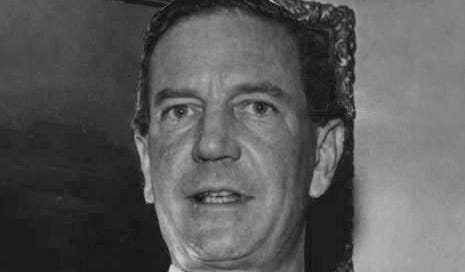A war correspondent named Philby
When the British Expeditionary Force sailed to France after the outbreak of war in the fall of 1939, the government allowed 15 newspaper correspondents to accompany the troops.
One of them was H.A.R. Philby of The Times, who had established his bona fides beginning as a correspondent for the London newspaper during the Spanish Civil War. On Dec. 31, 1937, five carloads of journalists were eating lunch in their vehicles in Caude, Spain, when shells began whistling in. "We paid little notice, being used to it," wrote veteran United Press correspondent John DeGandt.
But then, "There was a terrific explosion. We closed our eyes instinctively and covered our faces. Through the half-opened window of the car a cloud of black dust and smoke entered, almost suffocating us." Artillery fire had struck a nearby car. Of the four occupants, only Philby would survive.
That stroke of luck would have unimaginable repercussions for decades to come. You might know the correspondent better by his nickname, Kim.
Born Jan. 1, 1912, Philby had already begun working for Soviet intelligence by this time, and would go on to become one of the Cold War's most notorious spies.
He used journalism as a cover throughout his career, first with his reporting for the Times from Spain and France and later for the Observer and the Economist in the Middle East in the late '50s and early '60s.
Most of his time in France came during the so-called "Phoney War." His stories for the Times reflected the relative lack of excitement, as in one passage quoted in Ben MacIntyre's Philby biography "A Spy Among Friends": "Many express disappointment at the slow tempo of the overture to Armageddon. They expected danger, and they have found damp."
Once German troops rolled into France and the Low Countries in mid-May 1940, though, Philby ended up high-tailing it for the coast to catch a ride back home, leaving his luggage behind. He would return to the continent to cover the fighting in June but ultimately vowed to get more directly involved in the war effort.
That eventually led to a position at MI6, one of the costliest hires British intelligence would ever make.




